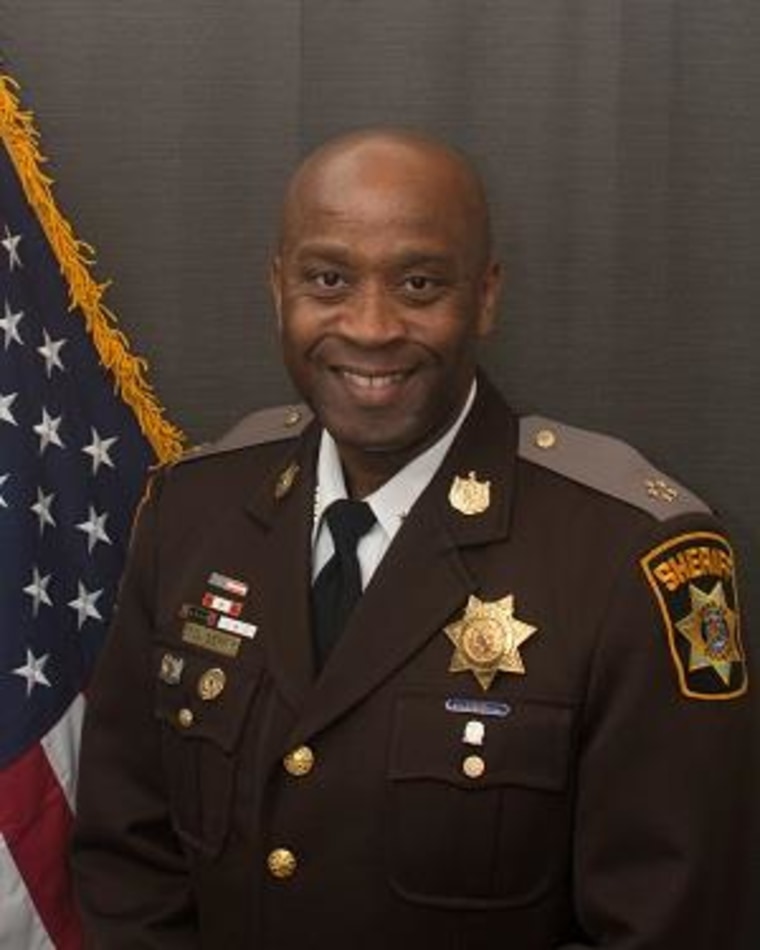It's Black History Month, a time we pay homage to the great stalwarts of the past and the prolific blacks of our time; those who are currently breaking racial barriers and paving ways for our next generation of black leaders. One of those leaders is Sheriff Troy Berry of Charles County, Maryland.
In December Sheriff Berry was installed as the first African American Sheriff in the history of the county’s 356 year old sheriff’s department. NBCBLK caught up with the Sheriff to discuss Ferguson, hostage negotiation, and of course his historic accomplishment.
How does it feel to be Charles County’s first black sheriff?
I’m humbled and I know that I stand on the platform of many fine Americans who came before me; who have allowed me this opportunity to place my name on the ballot.
Why did you run?
I ran to become sheriff not to make history, but to really make a difference and serve my community at a higher capacity.
Your election has come during a time when law enforcement is under much scrutiny in our country. What have you done in your community in response to incidents such as Ferguson and the Eric Garner tragedy?
Those particular situations are troubling. I think in law enforcement we do ourselves a disservice if we don’t really acknowledge them and realize that an individual’s perception is their reality. What I have done is ensured that we have safeguards. We have in-car cameras as well as trail audits. We also ensure that all complaints are investigated. On a second point, what we’ve done historically in Charles County is get involved with a lot of sweat equity things…We get involved in a host of programs which pay dividends in the community where the people don’t just see the sheriff’s office as an enforcement piece, but as a staple in the community.
Being a black man, if you had the opportunity to speak to all of the black males in America about law enforcement, influence, responsibility and education, what would you say?
That’s a very good question. What I would say to them is that we all start from different perspectives in life. It is critically important to work hard, to be a person of integrity, to be a person that is a team builder. And each and everyday attempt to be a person of excellence, not perfection, but of excellence.
To whom do you give credit for most of your success?
My parents. The one thing they taught me as a child was a sense of hard work, a sense of community, and a sense of family. They taught all their children that if you can dream it, you can achieve it. It has always resonated with me.
What most prepared you to take on the office of sheriff?
Really, my training here at the sheriff’s office and my interaction with a lot of community leaders. As a patrol officer being on the front lines, I was given the charge to protect life and property. As a detective, I investigated everything from burglary to homicide and brought many cases to successful closure. I was also Commander of Internal Affairs, reviewing the personnel matters of a law enforcement agency with over 600 employees.
You previously served as a hostage negotiator, what was that like?
That was an interesting time in my career…it really taught me to dialogue and have sincere conversations with individuals who are in crisis. It was a critical time and I think that experience served me well as I was aspiring for this position.
So, who is Troy Berry when the badge comes off?
That is a really good question. Troy Berry when the badge comes off is a fun loving person. I really like to do things with my family. In my private time I like to go to sporting events. I think in life, you have to have a balance. If you’re able to have a good family foundation, I think it helps you in your professional career.
